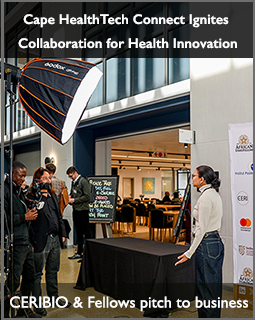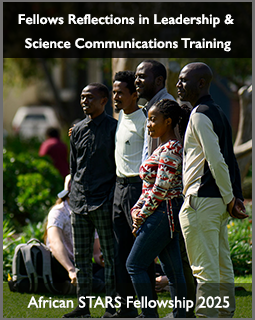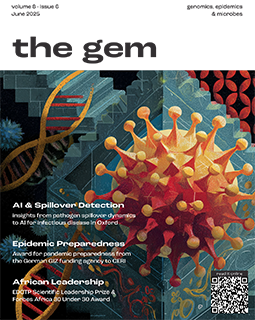International Workshop in Bloemfontein to Translate Research and Clinical Knowledge into Clinical Practice to Fight HIV & TB Drug Resistance in Africa
BLOEMFONTEIN, 21 November 2013. Today, a large intentional workshop on HIV & TB drug resistance starts, which will bring some of the top international researchers, clinicians and policy makers to the University of the Free State in order to discuss strategies to manage and prevent drug resistance in Africa.
Furthermore, during this event a new DNA sequencer will be launched at University of the Free State that will allow the Free State province to produce viral and bacterial genetic data to fight the local development of drug resistance.
The HIV and TB epidemics have expanded very fast and South Africa now has the largest HIV and TB treatment programme in the world with over 2 million patients on treatment. However, these successful treatment programs are now being threatened by the appearance of drug resistance. The Free State province has been at the forefront of fighting HIV drug resistance in South Africa and has one of the most advanced treatment programmes for the management of resistance strains in the country. In addition, researchers at the University of the Free State are leading partners in the Southern African Treatment and Resistance Network (SATuRN; www.bioafrica.net/saturn), a research network that has trained over 2,000 medical officers in the treatment of drug resistance strains.
The Department of Medical Microbiology and Virology at the Medical School at UFS has partnered with the provincial department of health, the Medical Research Council (MRC) and the Delegation of the European Union to South Africa to fund a dedicated DNA sequencer machine that will be used to generate HIV & TB drug resistance results. This new machine will allow enable cutting-edge research to take place with the data in the province and, importantly, support patients with resistance strains to have access to advanced genotypic testing techniques.
'HIV drug resistance is a very serious problem in South Africa, and the recent advances in DNA testing technology allow clinicians in the province to access drug resistance testing, which enables them to manage patients failing treatment appropriately and use the results to cost effectively extend and improve patients lives', says Dr. Cloete Van Vuuren, an Infectious Diseases Specialist at the Medical School, University of the Free State. Dr. Dominique Goedhals, pathologist from the Department of Medical Microbiology and Virology at UFS adds: 'We have been looking forward to expanding our work with the clinicians and researchers to use DNA sequencing to shed light on the causes and consequences of drug resistance in urban and rural settings in the province'.
'This workshop is a very important event, as nearly 200 South African medical officers will be trained to manage patients with resistance strains' argues Prof. Tulio de Oliveira, a geneticist from the Wellcome Trust Africa Centre for Health and Population Studies at the University of KwaZulu-Natal and the director of the Southern African Treatment Resistance Network (SATuRN). He continues, 'It is the third time that this workshop has been hosted in Bloemfontein. Our decision to host the workshop here is due to the commitment and expertise of local researchers and clinicians. This year, we have managed to bring some of the top researchers and clinicians from the USA, Canada, the U.K., Brazil, the Netherlands and Switzerland to teach at the workshop'.
This workshop is considered to be one of the best clinical training programs on HIV drug resistance in Africa. Lectures and organizers of the workshop have published a clinical HIV & TB casebook, which has now reached 'best-seller' status, following the printing and distribution of more than 10,000 copies of the book in Southern Africa. The workshop includes 38 presenters, many of whom have been working with the National Department of Health (NDoH) in South Africa and other African countries to translate the results of their research and clinical knowledge into national policy and clinical guidelines.
###
The 8th Southern African HIV & TB Drug Resistance and Treatment Monitoring workshop is taking place at the University of the Free State Medical School from the 21 to 22 November 2013. Approximately 200 participants from 24 countries will participate in the workshop.
### END
For more information please contact:
University of the Free State Public Relations Manager
University of the Free State
Bloemfontein, South Africa
News date: 2013-11-19
Links:
http://www.bioafrica.net/manuscripts/PressReleaseUFSworkshop2013.pdf










